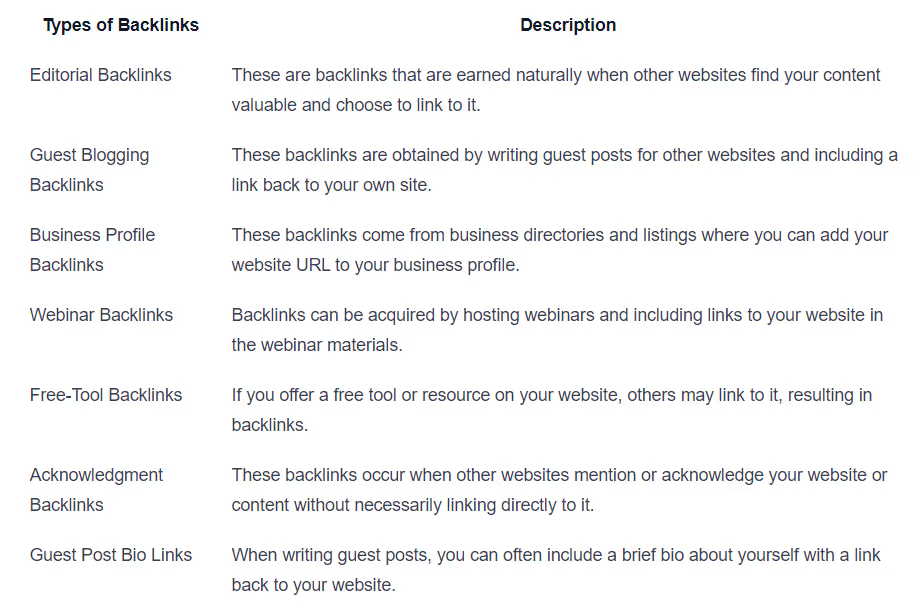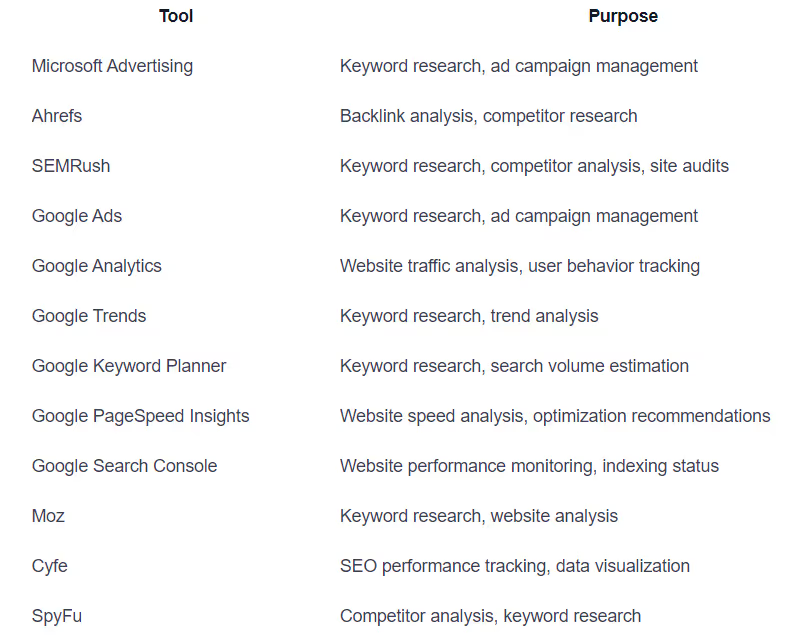56 SEO Interview Questions + Example Answers
This process involves a comprehensive review of online assets to identify areas for improvement and opportunities for optimization.


56 SEO Interview Questions + Example Answers
Understanding SEO Audit
To maximize the performance of a website in search engine results, conducting an SEO audit is crucial. This process involves a comprehensive review of online assets to identify areas for improvement and opportunities for optimization. By analyzing various factors such as site structure, content quality, and technical aspects, an SEO audit helps ensure that a website is well-optimized for search engines.
Importance of SEO Audit
An SEO audit plays a vital role in enhancing a website's visibility and organic traffic. By identifying errors and issues that hinder ranking potential, an audit helps uncover opportunities for improvement. Some key benefits of conducting an SEO audit include:
- Improved Search Engine Rankings: By identifying and addressing SEO-related issues, such as broken links, duplicate content, or poor site structure, an audit can help improve a website's search engine rankings.
- Enhanced User Experience: An SEO audit focuses not only on search engine optimization but also on improving the overall user experience. By ensuring a website is user-friendly, loads quickly, and provides valuable content, an audit helps enhance user satisfaction.
- Increased Organic Traffic: Through a comprehensive analysis of keywords, content, and technical aspects, an SEO audit helps identify opportunities to optimize for relevant search terms. By ranking higher for targeted keywords, a website can attract more organic traffic.
- Better Conversion Rates: By optimizing various elements of a website, such as call-to-action placement, user flow, and mobile responsiveness, an SEO audit can improve conversion rates. A well-optimized website provides a seamless experience that encourages visitors to take desired actions.
Tools for SEO Audit
Conducting an effective SEO audit requires the use of specialized tools that provide valuable insights and data. Two essential tools for an SEO audit are:
- Google Search Console: Google Search Console is a free tool provided by Google that offers valuable information about a website's performance in search results. It provides data on indexing status, search queries, backlinks, and crawl errors. By utilizing the various reports and features within Google Search Console, website owners can identify indexing issues, monitor site visibility, and optimize their website's presence in search results.
- Site Audit Tools: Site audit tools, such as SEMrush Site Audit, provide a comprehensive analysis of a website's SEO performance. These tools examine various aspects, including site structure, page speed, mobile-friendliness, meta tags, and content quality. They generate reports with actionable insights, highlighting areas that need improvement and suggesting optimization strategies. By utilizing site audit tools, website owners can gain valuable insights into their website's SEO health and make data-driven decisions for optimization.
By utilizing these tools, website owners can conduct a thorough SEO audit and gain a deeper understanding of their website's strengths, weaknesses, and opportunities for improvement. With this knowledge, they can implement effective strategies to optimize their website for search engines and improve their online visibility.

Elements of SEO Audit
To conduct a comprehensive SEO audit, several key elements need to be examined. These elements help identify potential issues and areas for improvement in your website's search engine optimization. In this section, we will explore three essential components of an SEO audit: indexing issues check, site crawl analysis, and backlink evaluation.
Indexing Issues Check
Checking for indexing issues is a crucial step in an SEO audit. It ensures that search engines, like Google, are properly indexing your website's pages. Failure to address indexing issues can result in your website not appearing in search engine results, leading to a significant decrease in organic traffic.
To perform an indexing issues check, you can utilize tools like Google Search Console. By accessing the "Pages" report under the "Index" section, you can identify any pages that have not been indexed or are experiencing indexing problems [1]. It is essential to ensure that Google is indexing only one version of your site, as having multiple versions can cause issues with crawling, indexing, and ranking.
Site Crawl Analysis
Running a site crawl is a fundamental aspect of an SEO audit. This process simulates the way search engines, such as Google, crawl and analyze your website's pages. By conducting a site crawl, you can identify technical SEO issues that may be hindering your website's performance in search engine rankings.
Website SEO auditing tools like Site Audit can help you conduct a thorough site crawl analysis. These tools examine various aspects of your website, including broken links, duplicate content, missing meta tags, and other technical SEO factors. Through the insights provided by a site crawl analysis, you can prioritize fixes and optimize your website for better search engine visibility.
Backlink Evaluation
Backlinks play a crucial role in SEO, as they are one of the factors search engines consider when determining the relevance and authority of a website. However, it's important to note that backlinks are not solely a numbers game. Quality of links, site structure, quality content, and the way a page renders are equally crucial factors for ranking above competitors with more backlinks.
During the backlink evaluation phase of an SEO audit, it is essential to analyze the quality and relevance of the backlinks pointing to your website. Tools like Ahrefs or Moz Link Explorer can help you identify both the number and quality of backlinks. By assessing the backlink profile, you can identify opportunities to build high-quality backlinks and improve your website's authority and visibility in search engine results.
By addressing indexing issues, conducting a thorough site crawl analysis, and evaluating backlinks, you can gain valuable insights into the areas of your website that require attention during an SEO audit. These elements are crucial for improving your website's search engine visibility, driving organic traffic, and ultimately achieving your SEO goals.
Backlinks in SEO
Backlinks play a crucial role in the world of SEO. They are considered as votes for your website compared to other websites, and search engines like Google, Bing, and Yahoo take these votes into consideration when determining the ranking of a website [3]. In this section, we will explore the importance of backlinks, the different types of backlinks, and the ongoing debate of quality versus quantity.
Backlink Importance
Backlinks hold significant importance in the realm of SEO. They act as a vote of confidence from other websites, signaling to search engines that your website is valuable and credible. The more backlinks you have from high-quality websites, the higher your site is likely to rank in search engine results.
Types of Backlinks
There are various types of backlinks that can impact your website's SEO. Some of the most common types include:

(Source: Simplilearn)
It's important to note that not all backlinks are created equal. The quality of a backlink is determined by the authority and relevance of the linking website. One high-quality backlink from a reputable website can often have a greater impact on your SEO than multiple low-quality backlinks. Therefore, it is crucial to focus on building high-quality backlinks rather than solely pursuing quantity.
Quality vs. Quantity
In the world of backlinks, quality holds more weight than quantity. While it may be tempting to accumulate as many backlinks as possible, it's important to remember that search engines prioritize high-quality backlinks from authoritative websites.
A single top-quality backlink can often outperform numerous low-quality backlinks. High-quality backlinks are typically from reputable and relevant sources, and they contribute to the domain authority of your website, boosting its search engine rankings [3]. On the other hand, low-quality backlinks can potentially harm your SEO efforts, especially if they come from spammy or irrelevant websites.
When building backlinks for your website, it's crucial to focus on acquiring high-quality backlinks from authoritative sources within your industry. This can be achieved through strategies such as creating valuable and shareable content, reaching out to influential websites for collaborations or guest posting opportunities, and engaging in meaningful online communities.
By prioritizing quality over quantity, you can ensure that your backlink profile positively impacts your website's SEO and helps to improve its visibility and ranking in search engine results.

SEO Interview Preparation
Preparing for an SEO interview requires a solid understanding of search engine optimization and its various aspects. As an SEO specialist, it's essential to possess the necessary skills, knowledge of technical SEO, and familiarity with tools for SEO analysis. Let's explore each of these areas in more detail.
SEO Specialist Skills
Employers expect SEO specialists to have a comprehensive understanding of search engine optimization, including keyword research, link building, content marketing, and inbound links. To excel in an SEO role, it's important to be well-versed in various SEO strategies and techniques.
Technical SEO Questions
Employers often ask technical SEO questions to assess your proficiency in different SEO strategies and tools. These questions aim to gauge your understanding of core SEO concepts, website optimization, search engine marketing, and analytics [4]. You should be prepared to discuss topics such as:
- Website optimization techniques
- Search engine marketing strategies
- Analytics tools and their application in SEO analysis
Having a strong grasp of technical SEO concepts is crucial. This includes knowledge of HTML, CSS, JavaScript, and popular CMS systems. Employers may inquire about your ability to identify violations of fundamental SEO rules and provide suitable solutions [5].
Tools for SEO Analysis
SEO specialists rely on various tools to conduct analysis, increase productivity, research keywords, and improve website rankings in search engine results. Familiarity with these tools is essential for an SEO interview. Some noteworthy tools include:

Proficiency in using these tools showcases your ability to conduct thorough SEO analysis and make data-driven decisions to improve website performance.
By preparing for SEO interviews, demonstrating your skills, technical SEO knowledge, and familiarity with essential tools, you can position yourself as a qualified candidate in the field of search engine optimization.
SEO Best Practices
When it comes to optimizing a website for search engines, there are certain best practices that can significantly improve its visibility and rankings. In this section, we will explore three key aspects of SEO best practices: on-page SEO importance, content updates for SEO, and metadata optimization.
On-Page SEO Importance
On-page SEO refers to the optimization techniques implemented directly on web pages to improve their search engine rankings. It plays a crucial role in enhancing a site's authority and relevance, ultimately driving more organic traffic. Quality, authoritative, and authentic content is a vital component of on-page SEO. It is recommended to create content tailored for the intended audience, ensuring it is informative, engaging, and valuable [6].
To optimize on-page SEO, it's essential to incorporate relevant keywords naturally within the content. This helps search engines understand the topic and context of the page. Additionally, using descriptive and keyword-rich titles, headings, and subheadings can further enhance the visibility and search engine rankings of the page.
Content Updates for SEO
Regularly updating content is considered a strong indicator of a site's relevancy by search engines. It demonstrates that the website is active and provides fresh information to its audience. Search engines prioritize websites that consistently provide up-to-date and valuable content. Updating existing content, introducing new sources, making modifications, and keeping the content fresh for the audience can positively impact search engine rankings [6].
To improve SEO performance through content updates, it is recommended to review the existing content before creating new content. This allows for identifying outdated content that may no longer be relevant or accurate. Pages that haven't been updated in the last 12+ months should be reviewed and refreshed to boost freshness and search ranking. By regularly updating and improving existing content, you can ensure that your website remains relevant and valuable to both users and search engines [7].
Metadata Optimization
Metadata refers to the information about a webpage that is not visible on the page itself but is embedded within the HTML code. It includes title metadata, description metadata, and keyword metadata. Optimizing metadata is crucial for improving search engine visibility and attracting relevant organic traffic.
Well-crafted metadata, rich with keyword phrases, contributes to better search engine results by providing concise and appealing information about the webpage's content. The title metadata appears as the clickable headline in search engine results, while the description metadata provides a brief summary of the page's content. Using relevant keywords and creating compelling descriptions can improve click-through rates and drive more traffic to the website [6].
By optimizing metadata, you can provide search engines with valuable information about your web pages, helping them understand the content and context. This, in turn, enhances the visibility and rankings of your website in search engine results pages.
Implementing these SEO best practices, including on-page optimization, regular content updates, and metadata optimization, can significantly improve the visibility and rankings of your website. By focusing on these key aspects, you can enhance your website's performance in search engine results, attract more organic traffic, and ultimately achieve your SEO goals.
Staying Updated in SEO
In the dynamic world of SEO, staying updated with the latest trends and developments is crucial. Google frequently changes its algorithm to provide better and more relevant information to users, which means SEO professionals need to constantly update their knowledge and practices for optimal results. Here are some strategies to stay informed and ahead in the world of SEO.
Latest SEO Trends
Staying up to date with the latest SEO trends is essential for success in the field. By keeping an eye on industry news and following reputable sources, professionals can stay informed about algorithm updates, new techniques, and emerging trends. One reliable source of information is Search Engine Journal, which offers insights, analysis, and practical tips on the ever-evolving SEO landscape.
Community Engagement
Engaging with the SEO community is a valuable way to share knowledge, exchange ideas, and stay informed about industry developments. Professionals often turn to forums and online communities like Reddit to ask questions, share articles, and engage with others in the field. These platforms serve as strategic sounding boards, allowing professionals to learn from their peers and gain insights into the challenges and successes of others [8].
Additionally, social media platforms such as Twitter, LinkedIn, and Facebook provide opportunities to connect with industry experts and thought leaders. Following SEO experts like Danny Sullivan and John Mueller on Twitter, for example, can offer valuable insights and updates on the latest happenings in the SEO world. Engaging with these experts and participating in relevant discussions can help professionals stay up to date with the latest trends and developments.
Professional Development
Continuous professional development is crucial in the fast-paced world of SEO. Industry professionals should actively seek out opportunities to enhance their skills and stay ahead of the curve. This can involve attending conferences, webinars, and workshops that focus on SEO and digital marketing.
Podcasts are another convenient way to access reliable tips and insights from industry experts. Listening to podcasts like the Search Engine Journal Show can provide professionals with valuable information on various aspects of SEO, PPC, social media, and digital marketing [8].
By actively engaging with the SEO community, following industry experts on social media, and continuously seeking opportunities for professional development, SEO professionals can stay up to date with the latest trends and best practices. This commitment to staying informed and evolving with the industry is key to achieving success in the ever-changing world of SEO.
References
[1]: https://www.semrush.com/blog/seo-audit/
[2]: https://www.searchenginejournal.com/backlinks-seo-how-important/379298/
[3]: https://www.simplilearn.com/types-of-backlinks-in-seo-article
[4]: https://brainstation.io/career-guides/seo-specialist-interview-questions
[5]: https://www.searchenginejournal.com/technical-seo-interview-questions/437305/
[6]: https://www.mtu.edu/umc/services/websites/seo/
[7]: https://www.semrush.com/blog/improve-seo/
[8]: https://www.searchenginejournal.com/stay-up-to-date-in-the-seo/172544/







